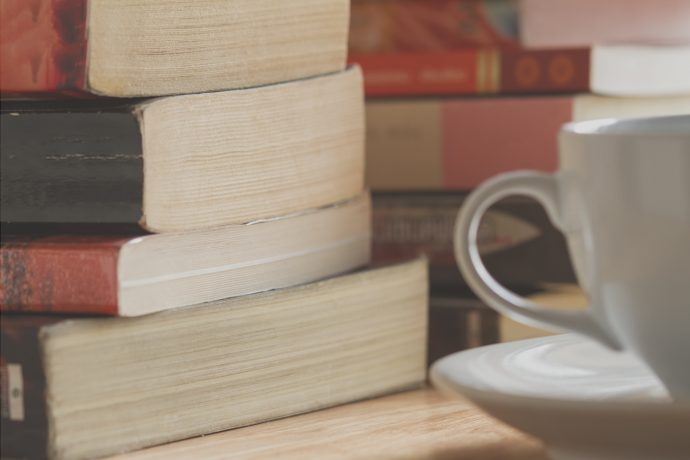They say the first step is admitting you have a problem, so here goes: I’m suffering from spiritual tsundoku. Don’t worry, you probably are too.
Tsundoku—the condition of acquiring reading materials but letting them pile up in one’s home unread—is a Japanese term I became familiar with from a coworker who has expressed anxiety over his mounting magazine subscriptions. It’s worth noting here that this same co-worker has been, for several months now, leaving New Yorker magazines on my desk after he is finished with them. I can’t read them all. I can’t even read half of them. The tsundoku struggle is real.
But lately I’ve realized something else is piling up too. Something far more precious than reading material. My days. According to Annie Dillard, “How we spend our days is, of course, how we spend our lives. What we do with this hour, and that one,” she says, “is what we are doing.”
. . . what we are doing. What am I doing?! It’s the question I ask every New Year. Taking stock of the past year, I implement course-correcting resolutions for the next one. But really, how effective is it to binge-reflect on an entire year? Is there a better way to get through all the life content that is stacking up?
Recently, my pastor Amanda introduced me to something called the Prayer of Daily Examen, which is the spiritual practice of reviewing each day through the lens of God’s love and guidance. St. Ignatius, who developed the Examen, believed the exercise came directly from God and, therefore, should be practiced by all Jesuit priests as one of their few rules of prayer. Beyond promising us a stronger presence of mind, Amanda says the Examen offers something else: an understanding of our whole life story.
By opening the individual pages of our days, reliving certain motions and emotions, we will become more aware of the lightness within us, yes—but also the darkness.
All right, here’s where I pause to slap a small warning label on this spiritual practice: By opening the individual pages of our days, reliving certain motions and emotions, we will become more aware of the lightness within us, yes—but also the darkness. Yet the grace we receive in the darkness is the most precious thing we have to share with our community. Here’s Amanda quoting Brennan Manning: “In a futile attempt to erase our past, we deprive the community of our healing gift. If we conceal our wounds out of fear and shame, our inner darkness can neither be illuminated nor become a light for others . . . To live by grace means to acknowledge my whole life story, the light side and the dark. In admitting my shadow side I learn who I am and what God’s grace means.”
In 2017, I hope you make it through some of those great books you have piled up on the shelves. I hope you feel like you’ve cracked the code to the universe each time you check something off your reading list. I hope too that you happen upon some meaningful articles or novels you didn’t anticipate.
But more than anything, I hope you find that the best story is the one you are living.
Keep reading.





0 Comments